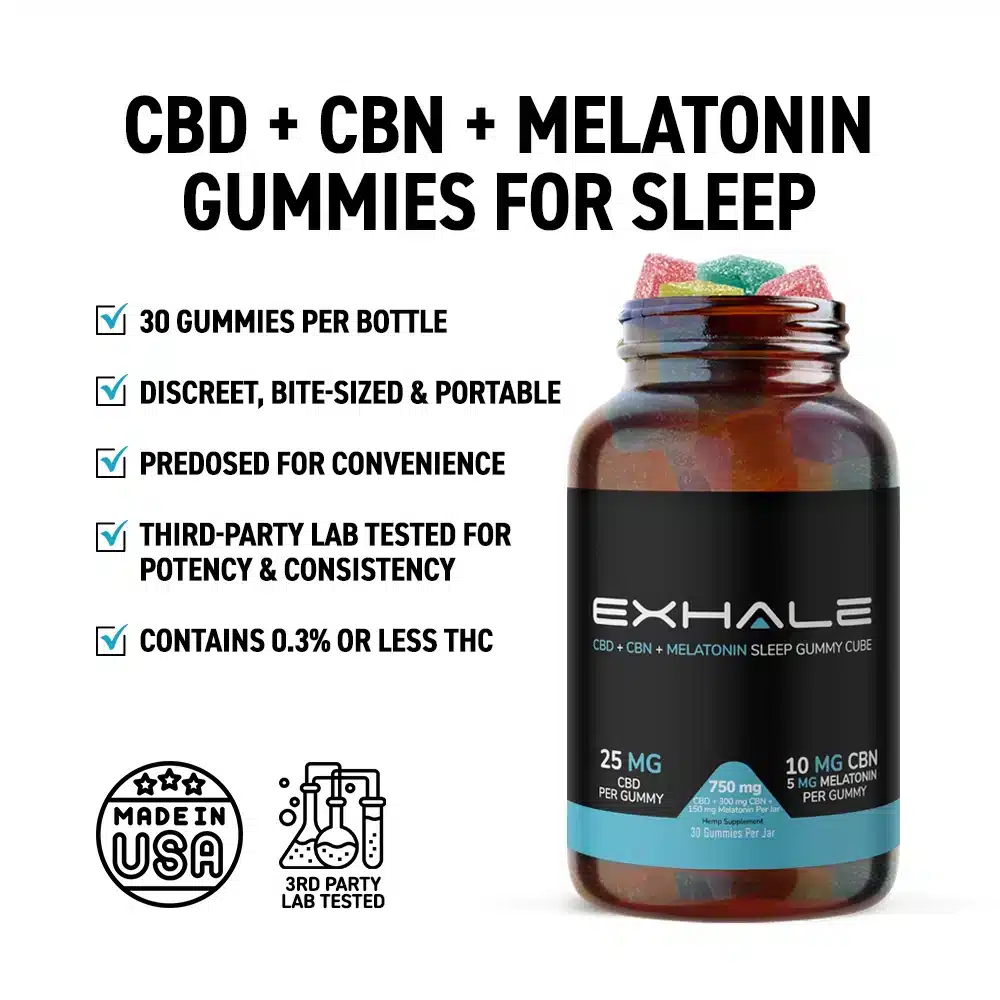The cannabis industry is expanding, and more people are exploring cannabinoids beyond THC. Of special interest are CBD and CBN. While both are non-euphoric and offer calming effects, they differ in their specific benefits. When it comes to CBN vs CBD, the differences matter.
CBD has become highly popular in recent years, known for its wide range of therapeutic uses. CBN, on the other hand, is emerging as a potential option for relaxation and, in particular, sleep. If you’ve ever wondered about the differences between CBN and CBD, you’re not alone. In this article, we’ll break down the key distinctions to give you a clear understanding of these cannabinoids. In the end, you’ll find that it’s not a battle between CBD vs CBN; rather both have complementary and integrative health and wellness potential.
Editor’s Note: This article is for informational purposes only and is not intended to provide medical advice, diagnosis, or treatment. Always consult with a licensed healthcare professional before using cannabinoids or supplements—especially if you’re managing a health condition or taking medication. While CBD and CBN may offer pain relief, support pain management, or serve as a potential sleep aid, they are not a substitute for professional care. These products are not intended to treat pain or replace other sleep aids prescribed by a healthcare professional. Medical cannabis patients should speak with their provider to determine what’s best for their individual needs.
What Is CBD?
CBD (Cannabidiol) is a non-euphoric cannabis plant cannabinoid. It’s the main cannabinoid in hemp (Cannabis sativa) and is also present in very small concentrations in marijuana plants. Unlike its cousin THC (Delta 9 THC, Delta 9, D9 THC, or D9), CBD doesn’t produce euphoric sensations—making it one of the most widely used cannabinoids for daily wellness.
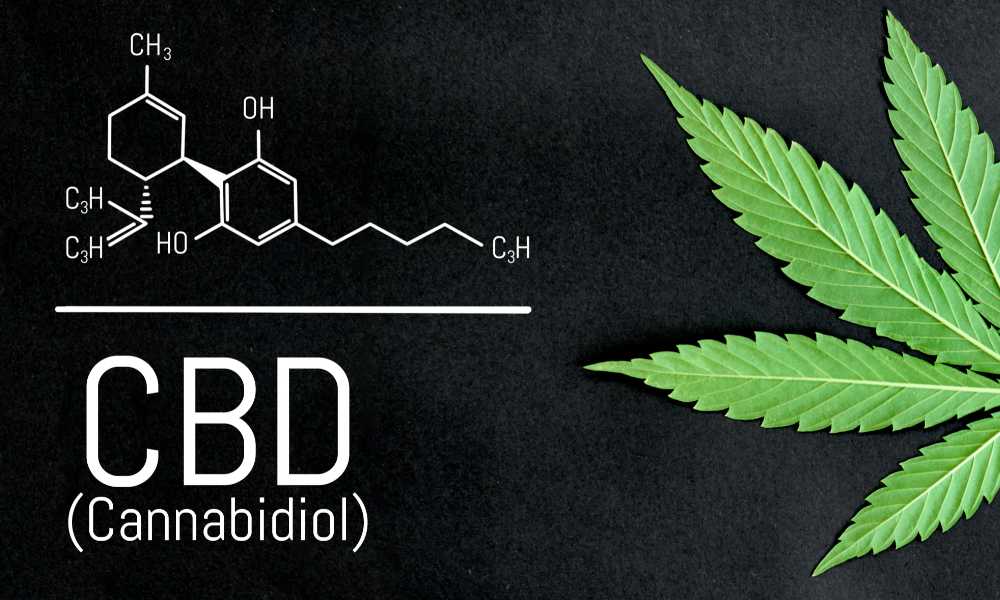
CBD is often used in complementary and integrative health. It is typically extracted from the hemp cannabis plant. Products containing CBD often have very low THC levels and are, therefore, non-euphoric. You can also purchase CBD in either broad-spectrum or isolate form, ensuring it is 100% THC-free.
How Does CBD Work With Your Body?
The cannabinoid is non-euphoric due to its chemical structure. Like other cannabinoids, CBD interacts with your body’s endocannabinoid system (ECS). This internal network of CB1 and CB2 cell-signaling receptors helps mediate several important aspects of mental and physical health. CBD’s structure restricts activity with the CB1 receptor, a class of endocannabinoid system receptors located in your central nervous system (CNS) and brain. CB1 receptors produce euphoric effects when certain cannabinoids bind to them. Since CBD’s structure does not allow it to bind with the CB1 receptor, it does not produce euphoric effects. However, CBD still reacts with certain areas of the receptor. This produces various wellness benefits while also helping to counter the psychoactive properties of THC.
CBD also interacts with the CB2 receptor to provide various physical wellness benefits. These include easing physical discomfort, supporting mobility, and helping relieve the negative side effects of environmental stress on the body.
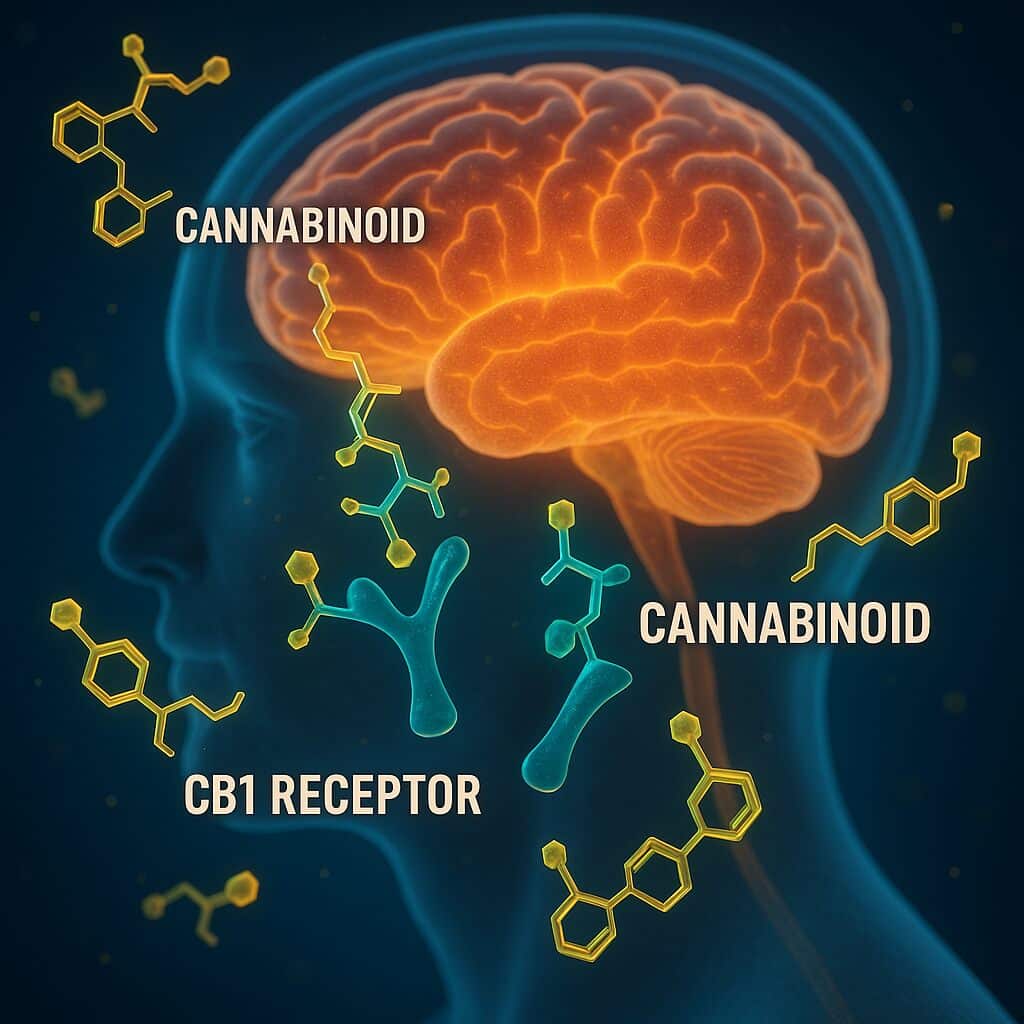
The most famous application of CBD’s wellness properties is in the drug Epidiolex. CBD can help reduce seizures in rare forms of epilepsy—in fact, it is the main ingredient in Epidiolex, the first and only FDA-certified prescription drug to help treat certain types of childhood seizures. CBD’s wellness potential also extends to providing sleep support and helping to reduce chronic physical discomfort.
What Is CBN?
CBN (Cannabinol) is a naturally occurring cannabinoid that results from THC degradation. Unlike THC, CBN is non-euphoric when consumed in regular doses. It produces feelings of calm and relaxation. Many take CBN due to its ability to help promote sleep.
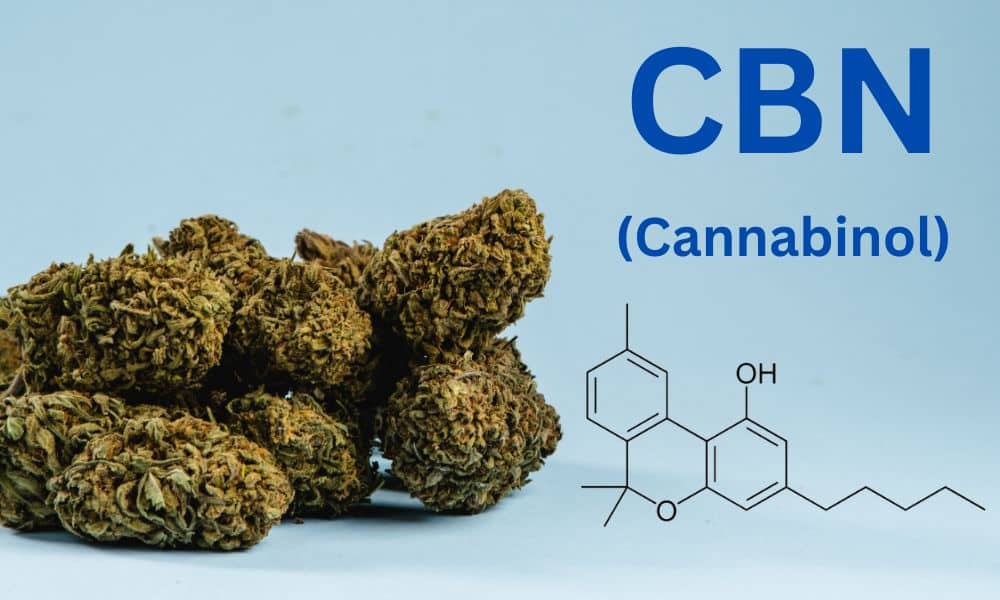
As a cannabis plant ages, THC eventually breaks down to form CBN. Scientific evidence reveals that THC becomes oxidized and exhausted in its early stages and then converts into CBN. The cannabinoid’s oxygen molecule also shifts during oxidation. As a result, CBN has a much lower binding affinity with the CB1 receptor in the endocannabinoid system, which is why it doesn’t produce appreciable euphoric effects. However, CBN may still produce euphoric effects when consumed in large amounts, but to a lesser extent than THC.
Despite its low affinity with the CB1 receptor binding site, it still interacts with the receptor to produce potential therapeutic benefits. It may be best known for its potential to improve sleep quality. Although not FDA-approved, CBN has slowly become one of the most effective natural sleep aids available to consumers. Cannabinoid research also reveals other benefits. For example, it may relieve physical discomfort and provide neuroprotective support.
CBN vs CBD Differences
So, in a nutshell, what is CBN vs CBD? Well, both are quite similar, but they have their share of differences. Here are some to consider.
- Origins. CBD is typically derived from the hemp (Cannabis sativa) plant. CBN can be derived from hemp, but it is more abundant in marijuana, where it forms as a direct result of THC degradation. While hemp plants contain trace amounts of THC, it also produces some CBN. However, marijuana, with its higher THC content, typically yields much more CBN.
- Dosing Time. Because CBN improves sleep, it should be taken at night. CBD can be taken during the day to enhance alertness; many treat CBD the same way you would a multivitamin and take it daily for optimal wellness.
- Euphoric Effects. CBD has little to no binding affinity for the CB1 receptor, so it does not produce euphoric effects. CBN has a low binding affinity with the CB1 receptor but may produce mild psychoactive effects at high doses.
- Sleep Aids Potential. CBD can help lower stress, making it an effective sleep aid. However, CBN is more directly related to sleep support. It is ideal for anyone looking to enhance relaxation and improve sleep quality.
Health Benefits CBD vs CBN
CBD and CBN also vary in terms of the health benefits they provide. Here are some to consider.
- Sleepiness vs. Mental Clarity. CBN is well-known for providing sleep support. Cannabis research suggests it may help sleep disorders without causing daytime fatigue. CBD, on the other hand, is famous for being a wake-promoting agent. However, it also reduces stress, which may effectively promote sleep at night.
- Physical Wellness Attributes. Although CBD produces several benefits, it may be best known for helping ease negative responses to bodily stress. It can treat physical discomfort associated with joint conditions and other chronic pain issues. CBD also possesses antioxidant properties and may boost the immune system to prevent illnesses.
- Both Are Non-Addictive. Studies show that CBD lacks addictive potential. In fact, it can be used to fight dependency. It may interact with the neurotransmission system involved in dependency to reduce urges to use tobacco, cocaine, opioids, and other substances. CBN is also non-addictive, but it has not been shown to fight addiction.
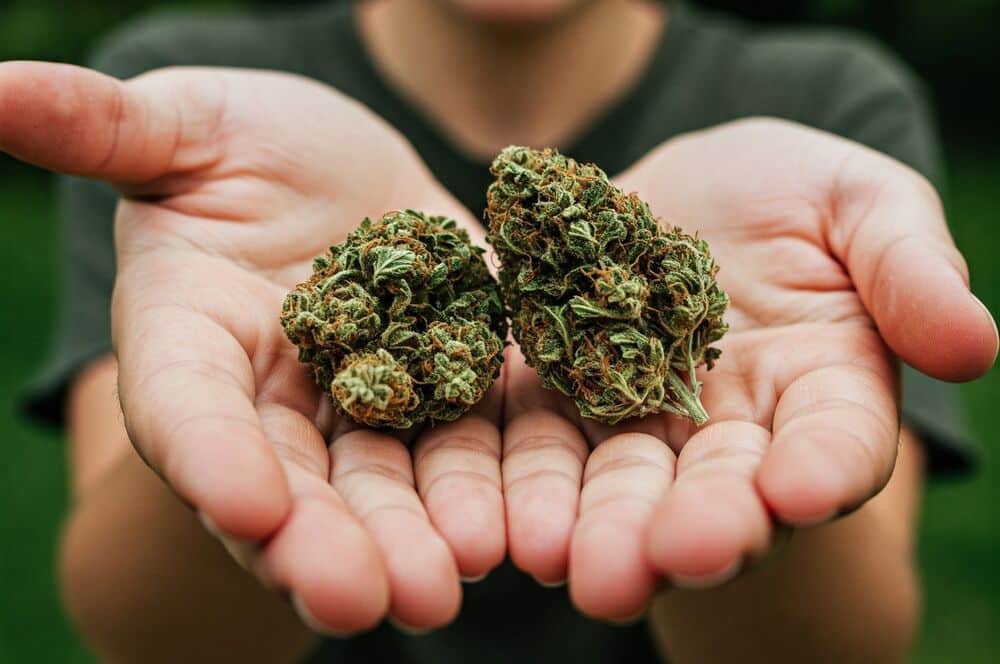
How To Use CBD and CBN
CBD and CBN are similar in how they can be taken. You will find them in various products. However, as one of the major cannabinoids, CBD is often the primary cannabinoid in a lot of hemp-based products. CBN is a minor cannabinoid and is typically combined with other cannabinoids to produce wellness effects.
You can find both cannabinoids in the following products:
- Oils and Tinctures. Both are similar because they are liquid formulas administered sublingually for fast results. Oils are carrier oils, like hemp seed oil, infused with CBD isolate, whereas tinctures use alcohol as a base. However, both are similar in their administration methods and effects. They are also highly versatile and allow mixing into food or drink for a more palatable experience.
- Edibles. Consuming edibles offers a convenient and enjoyable way to get your daily dose of CBD and CBN. While gummies are the most popular option, you can also find them infused into baked goods and beverages.
- Capsules and Softgels. Pills like capsules and softgels offer convenient dosing and can easily be transported for on-the-go use. Unlike other methods, they’re also discreet and won’t attract attention.
- Vapes. Vaping delivers fast-acting relief by inhaling vaporized CBD or CBN through a pen or cartridge. It’s quick, convenient, and comes in various flavors and strengths for a personalized experience on the go.
These versatile products may contain CBD, CBN, and other cannabinoids. However, topicals are a different story. You won’t find CBN topicals on the market because the cannabinoid won’t promote sleep through skin absorption. CBD, on the other hand, can be applied topically for localized soreness and discomfort management.
Time of Day
CBN is best taken at night to promote sleepiness. CBD can be taken in the morning to promote alertness throughout the day and general wellness. CBN can be taken as needed, while CBD works best with consistent daily use to experience its full benefits.

Dose Amounts
Dosing needs vary depending on your tolerance level and the severity of symptoms. However, most cannabis experts will advise you to take a “low and slow” approach. Start with low doses of these cannabinoids to see how they impact you. Wait a few hours to feel the full effects. Assess their efficacy, then slowly increase your dose until you find an amount right for you and your specific needs.
When it comes to CBD, you can use these handy formulas to estimate a dosage range.
- REGULAR Dose of CBD in mg = (Your body weight in pounds) x (0.25 mg CBD)
- STRONG Dose of CBD in mg = (Your body weight in pounds) x (0.5 mg CBD)
Remember, dosing ranges are just guidelines—not hard rules. Start low, go slow, and adjust based on how you feel.
For CBN, starting with 5 mg and gradually working up to 10–15 mg is a common approach. If you’re unsure how CBD or CBN will affect you, it’s always best to consult a healthcare provider for personalized guidance.
Which One Should You Choose?
When it comes to CBN vs CBD, the choice ultimately comes down to your individual needs. If sleep issues are impacting your life, choose CBN. It will minimize sleep disturbances and help you fall asleep faster.
CBD is better for general wellness, discomfort relief, and managing stress. It will help to promote alertness during the day. Its stress-relieving properties may help you sleep better at night, but that is not its main benefit.
However, for optimal health, you may choose a balanced approach. You can take CBD in the morning to prepare for the day and CBN at night to relax. The combination will help you achieve ultimate wellness.

FAQs About CBD vs CBN
Is CBD Non-Psychoactive?
Yes, CBD is non-psychoactive. Due to its chemical structure, it has a low binding affinity with the CB1 receptors in your brain; thus, it will not produce euphoria.
Can CBN Get You High?
CBN is typically non-euphoric, but taking higher doses may lead to mild feelings of euphoria.
How Should I Take CBN and CBD?
CBD and CBN can be consumed in tinctures, oils, edibles, and capsules. Research carefully to determine the method that’s best for you. CBD is best taken during the day, while CBN is best taken at night to promote sleep quality. Talk to a doctor or budtender to determine the best dose for your needs. Slow and low is the best approach.
What Is the Best Use for CBD?
CBD is terrific for promoting physical discomfort relief, mental clarity, and general wellness.
Can CBN Be Used for Anxiety?
CBN is effective in reducing anxious feelings because it promotes sleep at night. It will prevent stress from keeping you awake and help calm your mind. Also, when you sleep well, you experience better emotional regulation and healthy cortisol levels. However, you should not take CBN to control stress during the day because it may cause you to fall asleep.
Final Thoughts – CBN vs CBD [Sleep or Thrive? Discover 4 Key Differences]
CBD and CBN are both non-euphoric cannabinoids with distinct benefits. CBD is famous for easing physical discomfort, reducing stress, and supporting overall wellness. CBN, on the other hand, is often used as a natural sleep support. You can take CBD daily, while CBN is best on an as-needed basis.
The right choice depends on your personal health goals. But whichever you choose, always prioritize safe and mindful consumption. We hope you have a great experience—and don’t forget to explore our full range of CBD and CBN products!


